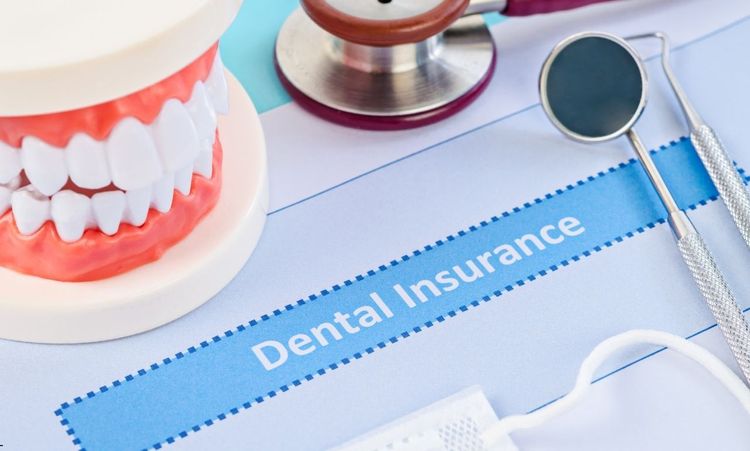Losing multiple teeth can severely impact daily life, affecting speech, eating habits, self-esteem, and overall health. Fortunately, advancements in dentistry offer transformative solutions, with full mouth dental implants standing out as a highly effective option. Full mouth implants not only restore functionality but dramatically enhance one's quality of life, returning confidence and comfort to daily interactions.
Understanding Full Mouth Dental Implants
What Are Full Mouth Dental Implants?
Full mouth dental implants, often referred to as full arch implants or implant-supported dentures, are prosthetic solutions designed to replace an entire arch (upper or lower jaw) of missing or severely damaged teeth. Unlike traditional removable dentures, these implants securely anchor artificial teeth directly into the jawbone, providing exceptional stability and natural aesthetics.
Typically, full mouth implants utilize four to eight strategically placed titanium implant posts per jaw, supporting a fixed dental bridge or prosthesis that replicates the appearance and functionality of natural teeth. These implants fuse with the jawbone through a process known as osseointegration, creating a strong and lasting foundation.
Who Should Consider Full Mouth Dental Implants?
Full mouth implants benefit those who:
- Have lost most or all of their teeth due to decay, periodontal disease, or trauma.
- Struggle with uncomfortable or unstable traditional dentures.
- Seek a permanent, hassle-free solution to missing teeth.
Candidates must generally have sufficient jawbone density and be in good overall health to ensure successful implant integration. However, advancements like bone grafting have expanded candidacy to include individuals with significant bone loss.
Advantages of Choosing Full Mouth Dental Implants
Enhanced Functionality and Comfort
One of the primary benefits of full mouth implants is their superior stability. Unlike removable dentures, implant-supported prostheses do not slip, shift, or click, enabling patients to eat, speak, and smile confidently. This stability closely mimics natural teeth, allowing individuals to chew a wider variety of foods without discomfort.
Improved Appearance and Confidence
Full mouth dental implants significantly enhance facial aesthetics by restoring lost volume and supporting facial structure. Tooth loss often leads to facial sagging and premature aging; implants reverse these effects by maintaining bone structure and supporting soft tissues, restoring a youthful appearance. This renewed confidence positively impacts social interactions, emotional well-being, and quality of life.
Durability and Longevity
With proper care, full mouth dental implants offer exceptional longevity, typically lasting several decades or even a lifetime. Unlike traditional dentures that require frequent adjustments and replacements, implants provide a stable, long-term solution, making them cost-effective over time.
Better Oral Health
Dental implants help preserve jawbone density by stimulating bone tissue, preventing bone resorption that typically occurs after tooth loss. Additionally, full mouth implants simplify oral hygiene routines compared to removable dentures, reducing the risk of gum irritation and infections, and contributing to improved overall oral health.
The Procedure: What to Expect
Initial Consultation and Assessment
The full mouth implant journey begins with a comprehensive dental evaluation, including detailed imaging (X-rays or CT scans), medical history review, and personalized treatment planning. During this phase, the dentist or oral surgeon assesses jawbone density, determines implant placement, and discusses expected outcomes and timelines.
Implant Placement Surgery
Implant placement involves surgically inserting titanium posts into the jawbone under local anesthesia or sedation. Typically, four to eight implants per jaw are strategically placed for optimal stability and functionality. Following surgery, a healing period of several months allows implants to integrate fully with the bone, ensuring long-term durability.
Temporary Prosthesis and Osseointegration
Immediately or shortly after implant placement, patients typically receive a temporary prosthesis to restore aesthetics and basic function during the healing phase. Osseointegration—the biological fusion of implants and bone—takes approximately three to six months, after which the temporary prosthesis is replaced by a permanent dental bridge or denture.
Placement of Permanent Restoration
Once implants have fully integrated with the jawbone, a customized, permanent prosthesis is crafted and secured onto the implants. This final restoration matches the appearance of natural teeth, providing exceptional comfort, aesthetics, and functionality. Regular follow-up visits ensure ongoing comfort and oral health.
Maintenance and Care for Full Mouth Implants
Maintaining full mouth dental implants requires routine oral hygiene and periodic dental check-ups. Proper care includes:
- Brushing twice daily with a soft-bristle toothbrush.
- Regular flossing or use of specialized interdental brushes.
- Professional cleanings every six months.
- Avoiding tobacco use and excessive alcohol consumption.
Proper hygiene prevents gum inflammation (peri-implantitis), ensuring implant longevity and optimal oral health.
Costs and Insurance Coverage
The cost of full mouth dental implants varies significantly based on geographic location, complexity, materials, and the patient's specific oral health needs. Typically, full mouth implants can range from $20,000 to $50,000 or more per jaw.
While initially costly, implants provide substantial long-term value by eliminating expenses associated with frequent denture replacements and adjustments. Some dental insurance plans partially cover implant costs, though coverage varies widely. Financing options and payment plans offered by dental practices often make treatment more affordable.
Potential Risks and Complications
Although full mouth implants boast high success rates (upwards of 95%), potential complications, though rare, can include:
- Infection or inflammation around implants (peri-implantitis).
- Implant failure due to inadequate osseointegration.
- Nerve damage or sinus complications.
- Implant fracture or prosthetic damage.
Selecting an experienced dental professional significantly reduces risks. Regular follow-up care further minimizes complications, ensuring lasting implant success.
Alternatives to Full Mouth Implants
Patients may also consider alternative solutions based on their individual circumstances:
- Traditional Dentures: Removable and affordable but offer less stability and comfort.
- Partial Dentures: Suitable for patients with remaining healthy teeth.
- Dental Bridges: Ideal for patients missing fewer teeth but require healthy neighboring teeth for support.
While alternatives exist, full mouth implants remain unparalleled in long-term stability, comfort, and quality of life enhancement.
Conclusion: Transforming Lives Through Dental Implants
Full mouth dental implants have revolutionized restorative dentistry, providing patients with missing or severely damaged teeth an opportunity to regain complete oral function, aesthetics, and confidence. Although treatment requires an investment in time and resources, the transformative benefits—both physically and emotionally—make full mouth implants a life-changing solution worth serious consideration for those seeking comprehensive dental restoration.




